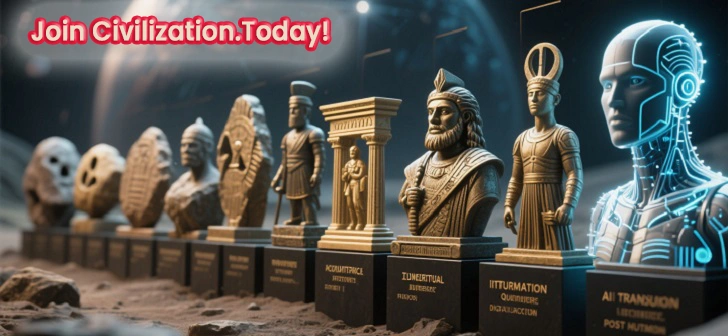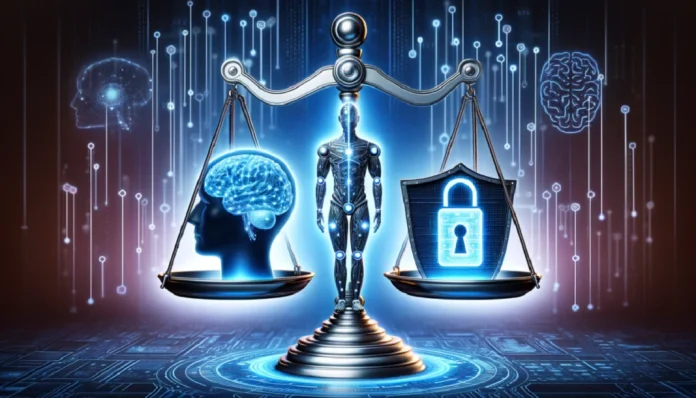Artificial Intelligence (AI) is no longer just a futuristic concept—it is here, shaping industries, influencing decisions, and transforming daily life. From healthcare diagnostics to autonomous vehicles and financial trading systems, AI has the power to revolutionize civilization. However, this power comes with unprecedented challenges: bias in algorithms, misuse of AI for surveillance, and the looming threat of autonomous decision-making without human oversight. This is where AI Governance becomes not just important, but essential.
In this article, we will explore what AI Governance means, why it matters, and how humanity can ensure that AI remains ethical, fair, and aligned with the future we want to build.
What is AI Governance?
At its core, AI Governance refers to the policies, frameworks, and mechanisms that guide how AI systems are developed, deployed, and managed. It is about creating rules to ensure AI is transparent, accountable, and aligned with human values. Just as governments regulate industries like aviation or pharmaceuticals, AI too needs oversight to prevent harm and ensure fairness.
An effective AI Governance framework covers:
- Ethical Guidelines. Defining what AI should and should not do.
- Accountability Structures. Assigning responsibility when AI systems fail.
- Transparency Standards. Ensuring AI decisions can be explained.
- Bias Mitigation Policies. Reducing unfair outcomes caused by data flaws.
- Security and Privacy Measures. Protecting individuals from AI misuse.
Why AI Governance is Crucial for Civilization’s Future
The future of civilization depends on how we manage AI today. Without proper governance, AI could reinforce inequality, undermine privacy, and even threaten democracy.
Here are the key reasons why AI Governance is vital:
1. Preventing Algorithmic Bias
AI systems learn from data. If the data is biased—reflecting historical inequalities—the AI will reproduce and amplify these biases. This could mean discriminatory hiring practices, unfair loan approvals, or biased law enforcement predictions. AI Governance ensures there are systems in place to audit and correct these biases.
2. Protecting Human Rights
Without rules, AI could be used for mass surveillance, facial recognition tracking, and social scoring—eroding freedom and privacy. Strong AI Governance frameworks protect human rights in the digital age.
3. Ensuring Accountability
If an AI-driven car causes an accident, who is responsible? The manufacturer? The programmer? Governance provides clear accountability chains so victims can seek justice.
4. Maintaining Public Trust
Without transparency, people will distrust AI systems. Governance ensures AI operates in an open, understandable, and verifiable way, increasing public confidence.
The Challenges of AI Governance
While the need for AI Governance is clear, implementing it is far from simple. Some of the biggest challenges include:
- Global Coordination. AI is borderless. Regulations in one country might not apply in another.
- Rapid Technological Change. AI evolves faster than laws can adapt.
- Corporate Resistance. Companies may resist strict rules to protect profits.
- . . Some AI models (like deep neural networks) are so complex they are called “black boxes,” making them difficult to regulate.
Key Principles for Ethical and Fair AI Governance
To build an effective governance framework, policymakers and technologists must follow a set of guiding principles:
1. Transparency
AI systems should be explainable, with clear documentation on how they work and what data they use. This helps detect bias and errors quickly.
2. Accountability
Every AI system must have a clearly defined responsible party—be it a company, government agency, or developer team.
3. Fairness
AI must be designed to avoid discrimination. This means testing against diverse datasets and monitoring outcomes continuously.
4. Privacy Protection
AI Governance must enforce strict rules on how personal data is collected, stored, and used.
5. Safety
AI systems—especially those in healthcare, transportation, or security—must be rigorously tested before deployment.
Global Efforts in AI Governance
Several countries and organizations are already taking steps to establish AI Governance frameworks:
- European Union (EU). The EU AI Act is one of the world’s first attempts to regulate AI comprehensively, classifying AI systems by risk level and imposing strict compliance requirements.
- United States. The White House has issued the “Blueprint for an AI Bill of Rights,” emphasizing privacy, fairness, and transparency.
- China. Focuses on controlling AI to align with state priorities, emphasizing security and social stability.
- UNESCO. Has developed a global standard on the ethics of AI to guide nations in responsible AI development.
While these initiatives are promising, they must evolve into a global, collaborative framework to truly ensure ethical and fair AI.
The Role of Businesses in AI Governance
AI Governance isn’t just the responsibility of governments—it’s also a corporate duty. Companies must adopt internal governance practices such as:
- Ethics Committees to review AI projects.
- Regular Bias Audits to detect discriminatory outcomes.
- Explainable AI Tools to make algorithms more understandable.
- Public Reporting on AI impact and performance.
When businesses take AI ethics seriously, they not only avoid scandals but also gain consumer trust and competitive advantage.
What the Future Holds for AI Governance
Looking ahead, the future of AI Governance will likely involve:
- International Treaties to create global AI standards.
- AI Ethics Certifications for companies and developers.
- Self-Regulating AI Systems that can monitor their own compliance with ethical guidelines.
- Public Participation in AI policy-making, ensuring diverse voices shape the rules.
If we get AI Governance right, we can ensure AI serves as a tool for progress—enhancing healthcare, education, sustainability, and overall human well-being.
Conclusion: Governing AI to Protect Civilization’s Future
AI has the potential to be humanity’s greatest invention—or its most dangerous mistake. The difference lies in how we govern it. AI Governance is the safeguard that ensures AI is ethical, fair, transparent, and accountable. Without it, we risk creating a future where machines make decisions that undermine human values. With it, we can build a civilization where AI works for everyone, not just the powerful few.
The question is not whether we need AI Governance—it’s whether we will act fast enough to implement it before the technology outpaces our ability to control it.




